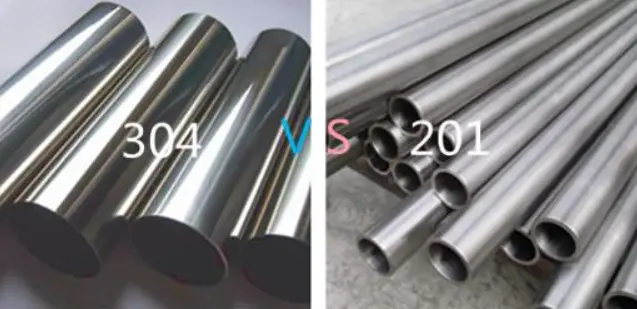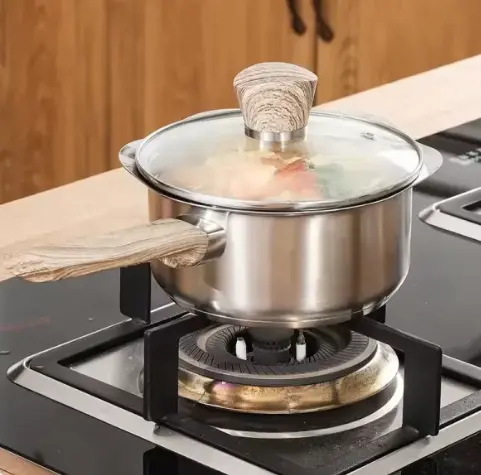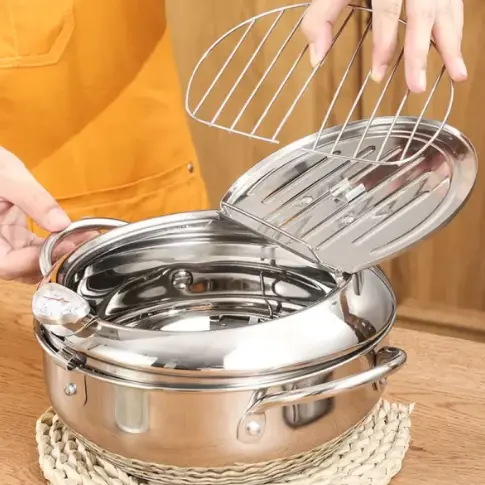Autor:Tuffy.
Edelstahl ist eine Art hochlegierter Stahl, der in Luft oder chemisch korrosiven Medien korrosionsbeständig ist, was wir heute allgemein als Edelstahlmaterial bezeichnen.Es gibt viele Arten von Edelstahlmaterialien, von denen die beiden wichtigsten sind Rostfreier Stahl 304 und rostfreier Stahl 201. Diese beiden Arten sind sich vor allem in den Augen ähnlich, aber die Qualität ist völlig unterschiedlich. Viele Menschen kennen immer noch nicht den Unterschied zwischen diesen beiden Materialien.

Was ist der Unterschied zwischen 201 und 304 rostfreiem Stahl?
Der Unterschied in der Zusammensetzung
Die Zusammensetzung von rostfreiem Stahl 201 und rostfreiem Stahl 304 ist unterschiedlich. Obwohl beide zu einer Cr-Ni-Legierung gehören, ist die Zusammensetzung der spezifischen Anteile unterschiedlich. Der Chromgehalt in Edelstahl 201 beträgt etwa 15%, während der Chromgehalt in Edelstahl 304 bei 18% liegt. Ebenso beträgt der Nickelgehalt in 201 rostfreiem Stahl 5%, während er in 304 rostfreiem Stahl mit etwa 9% höher ist; 201 rostfreier Stahl enthält Mangan, 304 jedoch nicht. Daher sind die Oberflächen vom Aussehen her unterschiedlich. Die Oberfläche von rostfreiem Stahl 201 ist heller, während die Oberfläche von rostfreiem Stahl 304 matt ist.
Der Unterschied in der Korrosionsbeständigkeit
Aufgrund des unterschiedlichen Nickelgehalts ist die Korrosionsbeständigkeit von Edelstahl 201 nicht so gut wie die von Edelstahl 304, und die Säure- und Laugenbeständigkeit von Edelstahl 201 ist nicht so gut wie die von Edelstahl 304. Edelstahl 304 hat eine gute Korrosionsbeständigkeit gegenüber Säuren, Laugen, Hochtemperaturoxidation und oxidierenden Chemikalien. Die Korrosionsbeständigkeit von Edelstahl 201 ist jedoch schlechter als die von Edelstahl 304, und er kann der Korrosion von sauren Lösungen und Meerwasser nicht standhalten.
Der Unterschied zwischen Festigkeit und Härte
Die Festigkeit und Härte von nichtrostendem Stahl 304 sind besser als die von nichtrostendem Stahl 201. Nichtrostender Stahl 201 ist relativ weich und lässt sich leichter verarbeiten und herstellen als nichtrostender Stahl 304. Nach der Wärmebehandlung kann 201 Edelstahl seine Festigkeit und Härte verbessern, aber seine Zugfestigkeit und Druckfestigkeit sind immer noch schwächer als 304 Edelstahl. 304 Edelstahl kann außerdem seine Festigkeit nach dem Schweißen wieder verstärken, aber 201 Edelstahl hat diese Eigenschaft nicht.
Die Unterschiede in den Anwendungsbereichen
Die Korrosionsbeständigkeit von rostfreiem Stahl 201 ist nicht hochwertig, aber seine Dichte ist höher, und es gibt keine Nadellöcher im Inneren, so dass es für trockene Umgebung geeignet ist. Es wird in der Regel in der Innendekoration, wie Dekoration Bereich und industrielle Produkte, die die Nachfrage gut erfüllen können. 304 Edelstahl hat eine bessere Korrosionsbeständigkeit, so dass es in der täglichen Küche, Industrie, medizinische Behandlung und anderen Branchen verwendet werden kann, und es ist auch für einige Küsten-oder feuchten Gebieten geeignet.


Der Preisunterschied zwischen rostfreiem Stahl 201 und rostfreiem Stahl 304
Da die Zusammensetzung von rostfreiem Stahl 304 komplex ist und der Herstellungsprozess kompliziert ist, ist der Preis von rostfreiem Stahl 304 höher als der von rostfreiem Stahl 201, gemessen am aktuellen Marktpreis. Wenn der Preis von Edelstahl 304 der gleiche ist wie der von 201, müssen Sie vorsichtig sein, wenn es gefälscht ist.
Obwohl nichtrostender Stahl 201 in einigen Bereichen verwendet werden kann, die Verarbeitung und Herstellung erfordern, hat nichtrostender Stahl 304 offensichtliche Vorteile in Bezug auf Festigkeit, Härte, Korrosionsbeständigkeit und Oberflächenbehandlung. Nichtrostender Stahl 304 ist die bessere Wahl, und nichtrostender Stahl 201 kann in einigen Fällen, in denen die Anforderungen an das Material nicht so hoch sind, ebenfalls geeignet sein. Daher müssen wir den rostfreien Stahl entsprechend den spezifischen Einsatzszenarien und Anforderungen auswählen.
Warum bevorzugen die Hersteller von Küchengeräten Edelstahl 304 gegenüber Edelstahl 201?
304 und 201 sind zwei gängige Wahlmöglichkeiten. Die Hersteller von Küchengeräten bevorzugen jedoch in der Regel den rostfreien Stahl 304 gegenüber dem rostfreien Stahl 201. Obwohl Edelstahl 201 auch gewisse Vorteile hat, ist Edelstahl 304 in vielen wichtigen Aspekten überlegen.
Obwohl 201er Edelstahl gewisse Preisvorteile hat, ist er für die Herstellung von Küchengeräten nicht sehr geeignet. Küchengeräte müssen häufig mit verschiedenen Säuren und Laugen in Berührung kommen, weshalb die für die Herstellung von Küchengeräten verwendeten Materialien eine bessere Korrosionsbeständigkeit aufweisen müssen. Küchengeräte aus rostfreiem Stahl 201 sind weit weniger korrosionsbeständig als rostfreier Stahl 304 und neigen zu Rost oder Korrosion.
304 hat auch eine hohe Zähigkeit, Härte und Verarbeitungsleistung und lässt sich leicht zu Küchengeschirr in verschiedenen Formen und Größen verarbeiten. Gleichzeitig kann es gute physikalische Eigenschaften bei hohen und niedrigen Temperaturen beibehalten und hohen Temperaturen von bis zu 800 °C ohne Verformung standhalten, was es für den Einsatz in verschiedenen Kochumgebungen und für Öfen, Dampfgarer usw. geeignet macht.
Was die Marktnachfrage betrifft, so steigt die Nachfrage der Verbraucher nach hochwertigen Küchengeräten. Obwohl nichtrostender Stahl 201 kostengünstiger ist, wird er aufgrund seiner Leistungsmängel hauptsächlich für Produkte verwendet, die kostenempfindlich sind und geringe Qualitätsanforderungen stellen. Edelstahl 304 als Material mit zahlreichen Vorteilen kann diese Marktanforderungen besser erfüllen. Die hohen Anforderungen des Marktes und das Streben der Verbraucher nach Qualität lassen die Bereitschaft der Hersteller von Küchengeräten steigen, in rostfreien Stahl 304 zu investieren.
Zusammenfassend lässt sich sagen, dass die Hersteller von Küchengeräten Edelstahl 304 gegenüber Edelstahl 201 bevorzugen, vor allem weil Edelstahl 304 in Bezug auf Korrosionsbeständigkeit, Haltbarkeit, Sicherheit und Marktanpassung überlegen ist.
